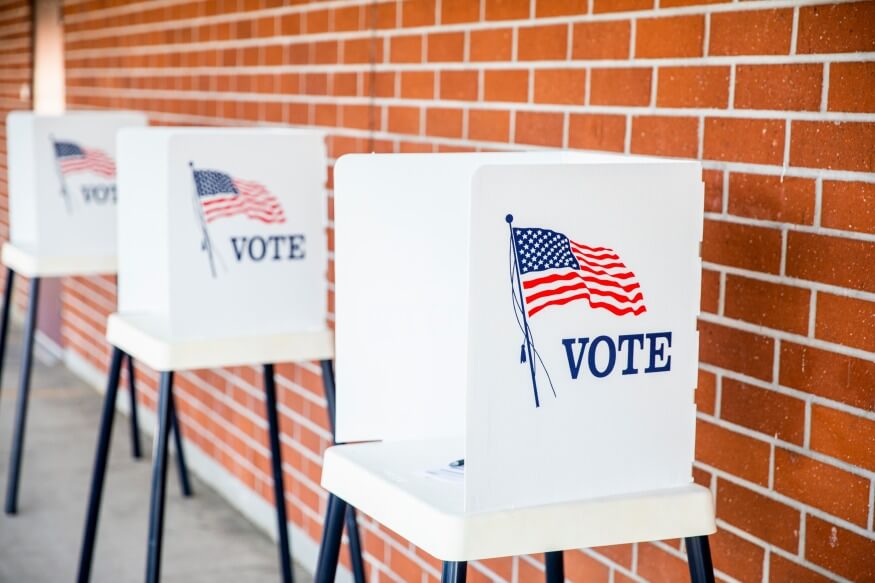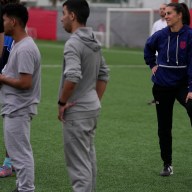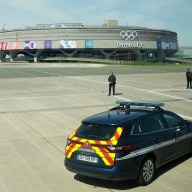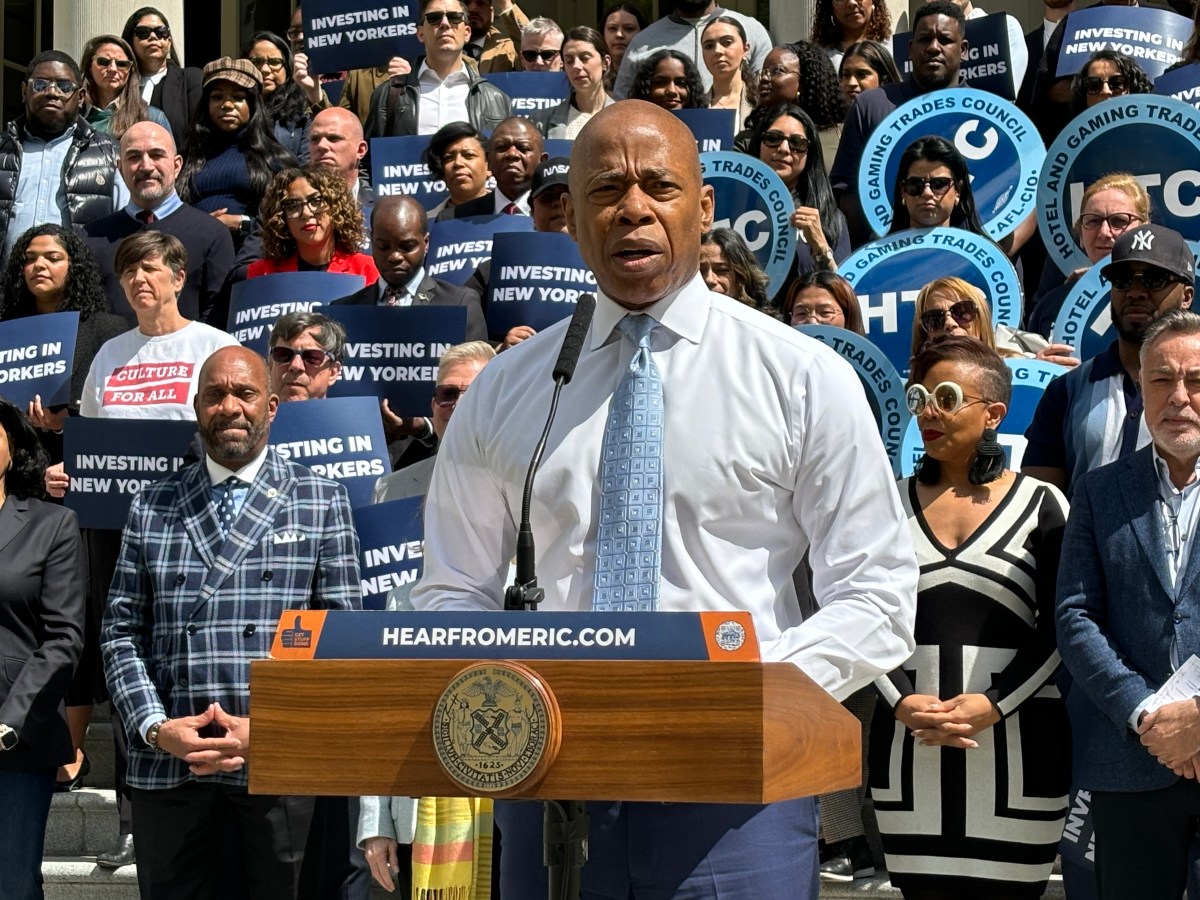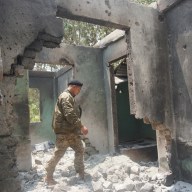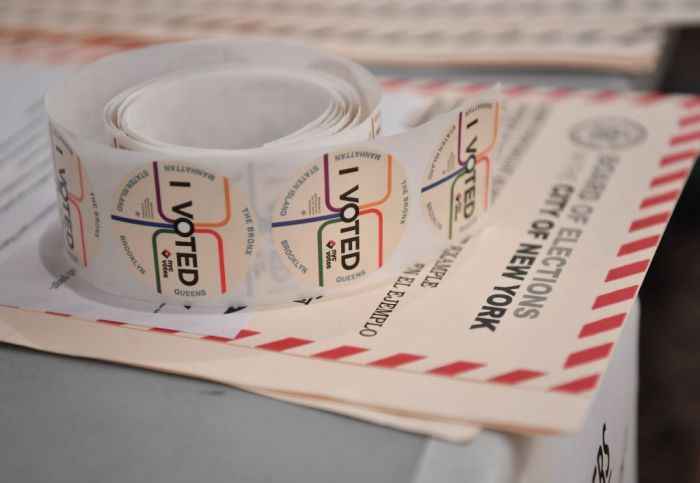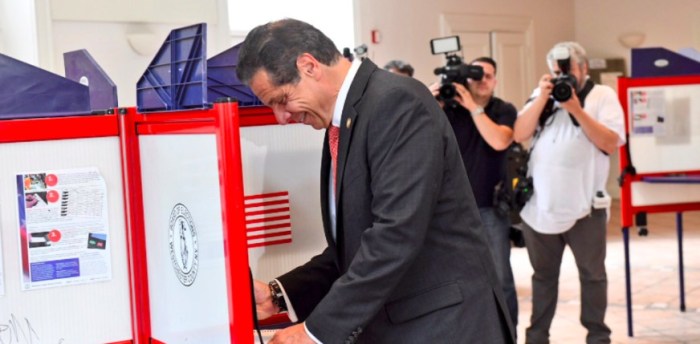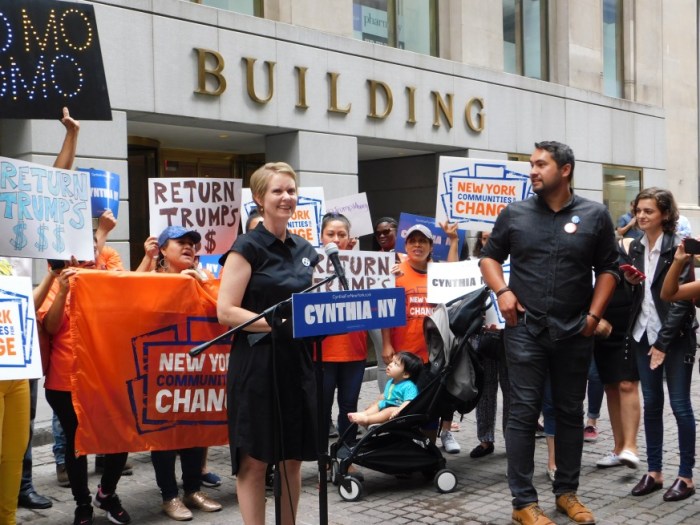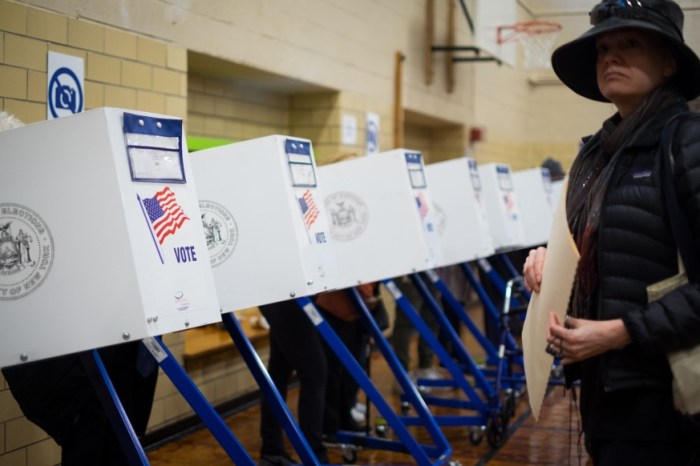Election Day 2018 is around the corner, and before New Yorkers head to the polls, officials are enacting efforts to make voting easier for limited English speaking voters.
Mayor Bill de Blasio and the New York City Council announced on Monday that the administration will provide interpretation services at 100 New York City polling sites on Election Day.
Nearly half — 49 percent — of all New York City residents speak a language other than English at home, according to 2017 Census Bureau data. That’s about 4 million people in total in all of New York City, and Queens Borough President Melinda Katz noted that in Queens alone, more than 1.3 million people speak a language other than English at home.
With millions of residents possibly being more comfortable communicating in a language other than English, officials want to ensure that the act of voting on Election Day is easy for all New Yorkers.
Currently, the New York City Board of Elections provides interpretation services at certain poll sites in Spanish, Mandarin, Cantonese, Korean and Bangla, as required by the Voting Rights Act.
That doesn’t cover the most commonly spoken languages in New York City, though, so officials are filling that gap by providing Election Day interpretation services in Russian, Haitian Creole, Italian, Arabic, Polish and Yiddish — the six most common spoken languages among limited English proficient New York City voters.
“The language you speak and understand should not be a barrier to civic participation,” de Blasio said in a statement. “Voting should be an easy task, and we’re upholding that truth by identifying and filling gaps in communities where translation services are needed. Whether it’s Haitian Creole, Russian or Arabic, we’re making sure that you’ll be able to participate in our democracy no matter what language you speak.”
City interpreters will have to be 101 feet away from poll sites, though, to comply with Board of Election specifications, the city said. BOE rules prohibit electioneering within 100 feet of poll sites; a city official did not immediately respond to a request for comment asking how interpretation services qualify as electioneering.
Erika Lorshbough, legislative counsel at the NYCLU, countered the idea that those who provide interpretation services should have to stay so far from poll sites.
“Language assistance services are not electioneering and should not be treated as such,” she said in an email. “It is unfortunate that the NYC Board of Elections has decided to reprise its 2017 policy to keep city-sponsored interpreters 100 feet from the polls. Voters should know that they can invite an outside interpreter, family member or friend into the polling place to assist them in casting their vote, and that ballot marking machines in many polling places also provide language assistance.”
Staff will be identified as interpreters by wearing pins that say “interpreter” in English and in the additional lanuage they speak. They will accompany voters into poll sites upon request.
Election Day interpretation services: which polling sites will have more options?

The 100 polling sites with these increased Election Day interpretation options are located throughout Brooklyn, Queens and Staten Island, according to the city.
Officials picked these New York City polling sites by using Census data to identify the election districts with the highest needs for these interpretation services.
City interpreters will be available from 6 a.m. to 9 p.m. on Election Day. The full list of participating Election Day locations can be found at www1.nyc.gov/site/immigrants/help/city-services/voting-civic-engagement.page.

